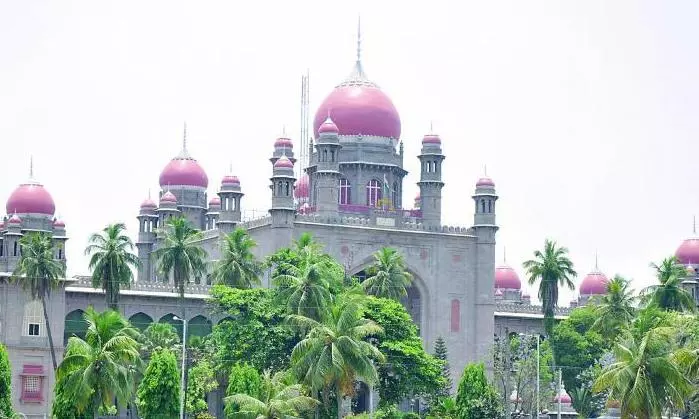HC Upholds Arbitrator’s Order To Raze Building

HYderabad: A two-judge panel of the Telangana High Court set aside an order of the commercial court, observing that the trial court judge without going into all aspects of an agreement considered by the arbitrator and without considering the detailed reasons given, had held that the arbitrator had travelled beyond the scope of arbitral proceedings and passed an award to pull down a construction without jurisdiction when there was no such agreement between the parties. The panel of Chief Justice Alok Aradhe and Justice N.V. Shravan Kumar found no fault in the arbitral award made by retired High Court judge Justice Neelam Sanjiva Reddy in the dispute between a retired railway employee V.B. Ramsagar and Srijay Constructions. Ramsagar, the appellant, had entered into a development agreement for developing a 350-sq. yd land parcel at Methodist Colony, Kundanbagh, Begumpet, in 1996. The High Court appointed an arbitrator to adjudicate the dispute. The arbitrator observed that the respondents had committed a breach of the development agreement dated October 11, 1996, that the building was not constructed as per the agreement, that the construction was stopped in the middle and that the structures raised were not sound and the life of the building would not be more than two decades. The arbitrator further observed that the respondents would acquire the right to the agreed share only after completion of the whole complex, and till then had no right to compel the appellant to register their entitled share. The arbitrator ruled that a fresh building licence was required to proceed with the construction and observed that it was ideal to pull down the building and construct a new one for safety. The arbitrator finally held that the builders were not entitled to any relief and that they were bound to deliver the vacant site after pulling down the construction and clearing the debris. The trial court interdicted the award and ruled that the arbitrator had travelled beyond the scope of the proceedings by directing the pulling down the construction. The panel speaking through Justice Shravan Kumar said, “The constructions which are raised cannot be regularised at this point of time. Apart from that, the building is incapable of human habitation. The trial court has failed to observe that the respondents were not acting as per the terms of the agreement. The respondents have enjoyed the property for a period of 27 years and all these years the appellant was deprived of his legitimate right over the property. In our considered opinion, the learned arbitrator has not travelled beyond the scope of a submission made by the parties in the arbitration proceedings, and orders passed by the learned arbitrator are neither perverse nor illegal.” The panel also directed the builder partners to vacate the premises and hand over the same to the appellant.
TSGenco told to refer person’s PH/HH case to medical board
Justice Juvvadi Sridevi directed the Telangana State Power Generation Corporation (TSGenco) to refer the case of a person to its medical board and to consider him for the post of assistant engineer, mechanical, if he satisfied the eligibility criteria of disability. The court was dealing with a writ plea filed by T. Venkateswarlu questioning TSGenco for disqualifying him for appointment under the physically handicapped (hearing impaired) (PH, HH) category as illegal. TSGenco had issued a notification in 2015 for recruitment in the category. After a written examination, he was called for certificate verification. At the time, the petitioner did not produce the hearing impaired certificate and sought time, which was granted. It was the case of the petitioner that thereafter the respondents had assessed his hearing disability at 13 per cent based on which he was disqualified as the disability was less than 40 per cent. The petitioner said the certificate was not shown to him and the respondents, on their own, had got it from the hospital and disqualified him. He said that had the certificate been shown to him, he would have preferred an appeal with the appellate authority, as provided under the Persons with Disabilities (Equal Opportunities, Protection of Rights and Full Participation) Act, 1995. The petitioner also referred to a certificate given to him by the ENT hospital to the effect that he was having 35 per cent hearing disability. After examining the certificates, Justice Sridevi found that it was a fit case to give one more opportunity to the petitioner to establish his hearing disability and directed that the petitioner be subjected to a second opinion from the state appellant medical board.

